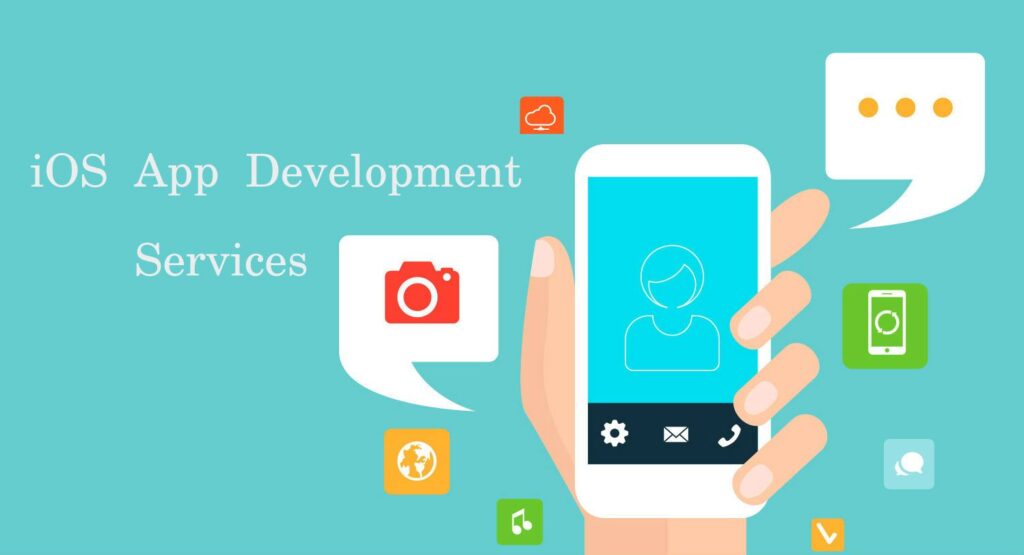Introduction
Overview of iOS App Development
iOS app development has revolutionized the way businesses engage with their customers, offering seamless experiences and robust functionalities. With the ever-growing popularity of Apple’s ecosystem, developing an iOS app can significantly enhance a company’s digital presence.
Importance of Choosing the Right Development Company
Choosing the right iOS app development company is crucial. It can mean the difference between a successful app launch and a project that fails to meet expectations. The right partner will understand your vision, possess the necessary technical expertise, and ensure that your app stands out in the competitive market.
Scope and Purpose of the Article
This article aims to provide a comprehensive guide to choosing an iOS app development company. From understanding the development process to evaluating potential partners and exploring future trends, this guide covers everything you need to know to make an informed decision.
Understanding iOS App Development
Definition and Overview
iOS app development involves creating applications for Apple’s iOS operating system, which runs on devices like iPhones and iPads. It requires specialized knowledge of Apple’s development environment, programming languages, and guidelines to create apps that meet the company’s high standards.
The iOS Development Environment
Xcode: Apple’s integrated development environment (IDE), Xcode, is essential for iOS development. It provides tools for coding, debugging, and testing apps.
Swift and Objective-C: These are the primary programming languages used in iOS development. Swift is modern, fast, and easy to learn, while Objective-C is an older language still used for maintaining legacy applications.
Key Stages in iOS App Development
Conceptualization: This involves brainstorming ideas, defining the app’s purpose, and outlining its features.
Design: UX/UI designers create the app’s interface, ensuring it’s user-friendly and visually appealing.
Development: Developers write the code, integrating various functionalities and features.
Testing: QA testers ensure the app is free from bugs and performs well across different devices.
Deployment: The app is submitted to the App Store for approval and made available to users.
Benefits of Developing Apps for iOS
Market Reach: iOS users are often seen as more willing to spend on apps and in-app purchases, offering higher revenue potential.
Revenue Potential: iOS apps generally generate more revenue compared to their Android counterparts, thanks to a more affluent user base.
Security Features: iOS offers robust security features, ensuring user data is protected.
User Experience: iOS is known for its consistent and high-quality user experience, which can enhance customer satisfaction and loyalty.
Types of iOS App Development Companies
Large Scale Companies
Large companies have extensive resources, a broad range of expertise, and the capacity to handle complex projects. They are suitable for enterprises looking for comprehensive solutions.
Medium-Sized Agencies
These agencies offer a balance between size and specialization, providing personalized services while still having the capability to manage larger projects.
Boutique Firms
Boutique firms are smaller, highly specialized companies that focus on niche markets or specific types of apps. They provide tailored services and close client interactions.
Freelancers
Freelancers can offer a cost-effective solution for smaller projects or startups with limited budgets. They are flexible and can bring a personal touch to the development process.
Evaluating iOS App Development Companies
Portfolio Assessment
Reviewing a company’s portfolio can provide insights into their capabilities, style, and the types of projects they excel in. Look for apps similar to what you envision.
Client Testimonials and Reviews
Feedback from previous clients can highlight a company’s strengths and potential weaknesses. Look for consistent positive comments on communication, delivery, and quality.
Expertise and Experience
Experience matters. A company with a long track record in iOS development is likely to have encountered and overcome various challenges, making them a safer choice.
Technical Skills and Proficiency
Ensure the company is proficient in Swift, Objective-C, Xcode, and other relevant tools and technologies. They should be up-to-date with the latest iOS developments.
Development Process and Methodologies
A well-defined development process ensures that projects stay on track. Agile methodologies are popular for their flexibility and iterative approach, leading to better end results.
Communication and Collaboration
Effective communication is crucial for the success of any project. Choose a company that values transparency and regular updates.
Pricing Models and Budget Considerations
Understand the company’s pricing models. Some may offer fixed-price contracts, while others work on a time-and-materials basis. Ensure their rates align with your budget.
Post-Development Support and Maintenance
An app needs ongoing maintenance and updates. Ensure the company offers post-launch support to handle any issues and keep the app up-to-date.
Key Services Offered by iOS App Development Companies
Custom App Development
Custom app development involves creating apps tailored to your specific needs and goals. This service is ideal for businesses looking for unique solutions.
Enterprise App Development
Enterprise apps are designed to streamline business processes, improve productivity, and enhance communication within large organizations.
UI/UX Design
UI/UX design focuses on creating user-friendly and aesthetically pleasing interfaces. A good design can significantly impact user retention and satisfaction.
App Testing and Quality Assurance
Testing and quality assurance ensure that the app is free of bugs and performs optimally across various devices and operating systems.
App Maintenance and Support
Regular maintenance and support are essential to keep the app running smoothly and up-to-date with the latest iOS updates and user feedback.
App Marketing and Promotion
Marketing and promotion services help your app reach a wider audience through various channels, including social media, app store optimization, and digital marketing.
Case Studies of Successful iOS App Development
Example 1: App for E-commerce
A leading e-commerce company partnered with an iOS development firm to create a user-friendly shopping app. The app featured a seamless checkout process, personalized recommendations, and real-time inventory updates, resulting in a significant increase in sales and customer satisfaction.
Example 2: App for Healthcare
A healthcare provider developed an app to improve patient engagement and streamline appointment scheduling. The app included features like telemedicine, electronic health records access, and medication reminders, leading to improved patient outcomes and operational efficiency.
Example 3: App for Social Networking
A startup launched a social networking app with unique features such as anonymous posting, location-based networking, and real-time chat. The app quickly gained popularity and attracted a large user base, thanks to its innovative approach and engaging user experience.
Challenges in iOS App Development
Keeping Up with iOS Updates
Frequent updates to the iOS operating system can pose challenges for developers, requiring them to continuously adapt and ensure compatibility.
Ensuring App Security
Security is paramount in iOS app development company. Developers must implement robust security measures to protect user data from breaches and attacks.
User Privacy Concerns
Privacy is a significant concern for users. Developers must ensure that apps comply with privacy regulations and transparently handle user data.
App Store Approval Process
The App Store has strict guidelines, and getting an app approved can be challenging.







